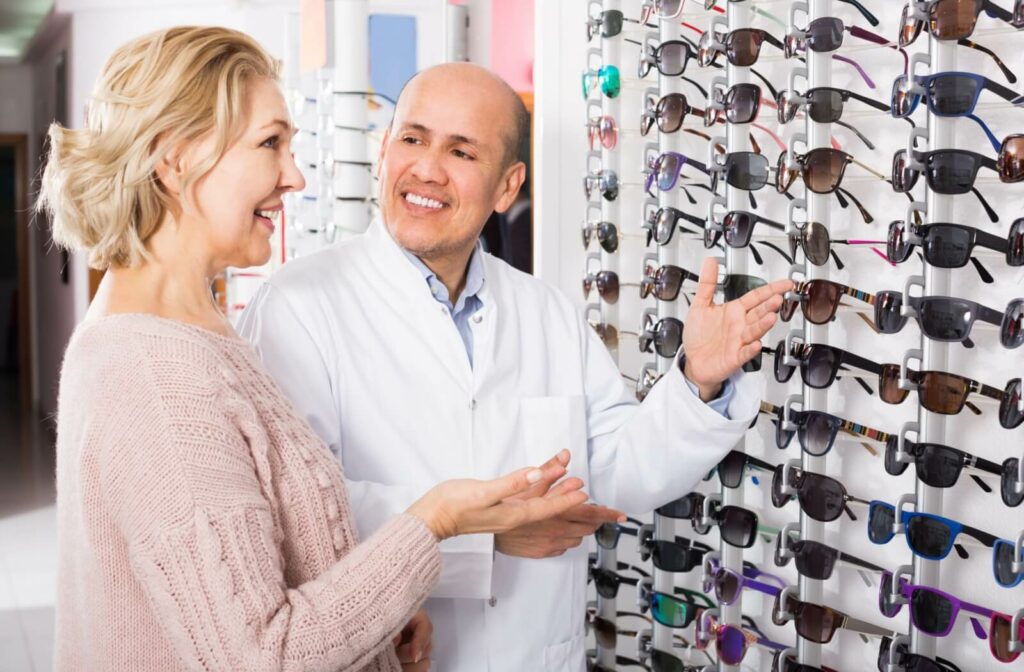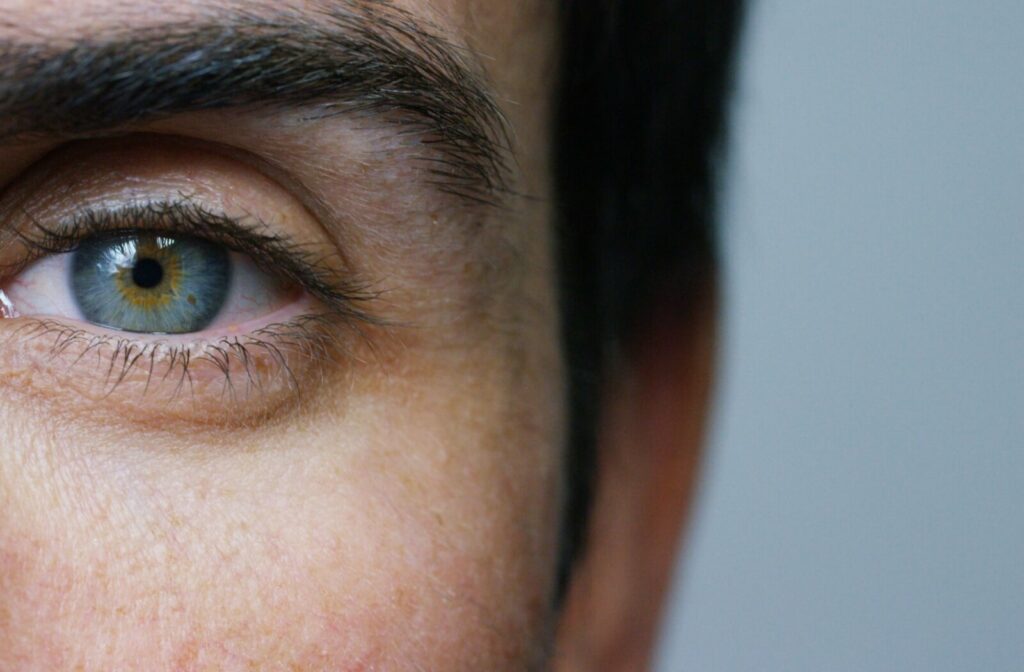Your eyes are remarkably sensitive. Unusual symptoms often develop, and their causes are sometimes simpler than you think. So what if you’re dealing with light sensitivity? Could your eye color play a part, or is there something more to it?
Your eye color doesn’t only affect appearance—it’s also involved in how your eyes filter light. A special pigment in your eyes determines how light or dark they are, and this same pigment protects you against bright light and UV rays. Blue eyes are less protected against bright light and sensitivity, while darker eyes are more protected.
What Determines Eye Color?
Eye color is largely influenced by genetics. It’s a combination of genes that determines the levels of melanin in the iris—the part of the eye that gives it color. But melanin doesn’t only affect pigmentation.
Melanin contributes to how much light the eye absorbs. It also protects your eyes against UV radiation and harsh environmental factors. It’s like a shield built into your iris. Darker eyes have more melanin, while lighter eyes have significantly less.
Blue eyes filter out less light and allow more to pass through to the retina. Because of this, people with blue eyes tend to deal with light sensitivity more than people with darker eyes.
What Causes Light Sensitivity?
Light sensitivity, or photophobia, is an eye condition where the eyes react more strongly to light than usual. For people with blue eyes, this sensitivity is often heightened. Their lower melanin levels make it harder to filter out and handle bright light.
Common triggers for light sensitivity include:
- Prolonged exposure to bright sunlight or harsh indoor lighting.
- Certain eye conditions like dry eye or corneal abrasions.
- Migraines, which can amplify discomfort from light.
- Overexposure to screens, which emit blue light.
People with blue tend to experience heightened discomfort when exposed to these triggers.
When Is Light Sensitivity an Emergency?
However, light sensitivity can sometimes be a sign of something problematic. If you ever notice significant pain or discomfort alongside your light sensitivity, immediately seek medical attention. This may indicate retinal damage or another serious condition.
You should also watch out for sudden changes like:
- Blurriness
- Dark spots
- Flashes of light
- Dark curtains near the edge of your vision
- Intense headaches
- Dizziness
- Nausea
- Redness or swelling
If you’ve rarely experienced light sensitivity before and are noticing it more and more often, it could be a sign of a serious condition developing.
Don’t ignore any changes in your vision—instead, talk to your optometrist or a healthcare professional. Quick intervention could mean the difference between discomfort and permanent vision damage.
Are Blue Eyes More Vulnerable to UV Rays?
Blue eyes aren’t only more sensitive—they’re also more susceptible to UV radiation. They naturally provide less melanin-based protection. This lack of pigmentation leaves the inner eye exposed to the sun’s harmful rays.
Over time, this can lead to a higher risk of:
- Cataracts, a clouding of the eye’s lens that can impair vision.
- Age-related macular degeneration, which affects the central part of the retina and can blur vision.
- Photokeratitis, a sunburn on the surface of the eye.
- Cancer and other severe conditions.
Whether you have blue eyes or not, you should always take UV protection seriously. Simple precautions can go a long way in reducing long-term damage.

What to Do About Light Sensitivity
Managing light sensitivity doesn’t have to be complicated. With a few adjustments, it’s easy to protect your eyes. To keep them comfortable in areas where light sensitivity could be a problem, try to:
- Wear sunglasses with 100% UV protection when outside.
- Choose polarized lenses to minimize glare and improve comfort in bright conditions.
- Use artificial tears to keep your eyes hydrated throughout the day.
- Adjust digital screens to reduce brightness.
- Take visual breaks during screen use to reduce eye strain.
These good habits may be all it takes to reduce discomfort. You deserve clear vision, and proactive measures are key to achieving this.
Keep Your Vision Clear
Blue eyes may be more light-sensitive, but that’s not the only factor at play. Plenty of factors contribute to light sensitivity, so knowing the signs of something wrong is essential. Remember—your vision is precious, so it should always be a priority.
Whether you have blue eyes or not, our team at Valley Eye & Vision Clinic is here to keep your eyes healthy and your vision clear. To learn more about how to protect your eyes, contact us today! We’ll work with you to address anything unusual, and we’re ready to help. Book your appointment with us—we’re here to help you every step of the way.


